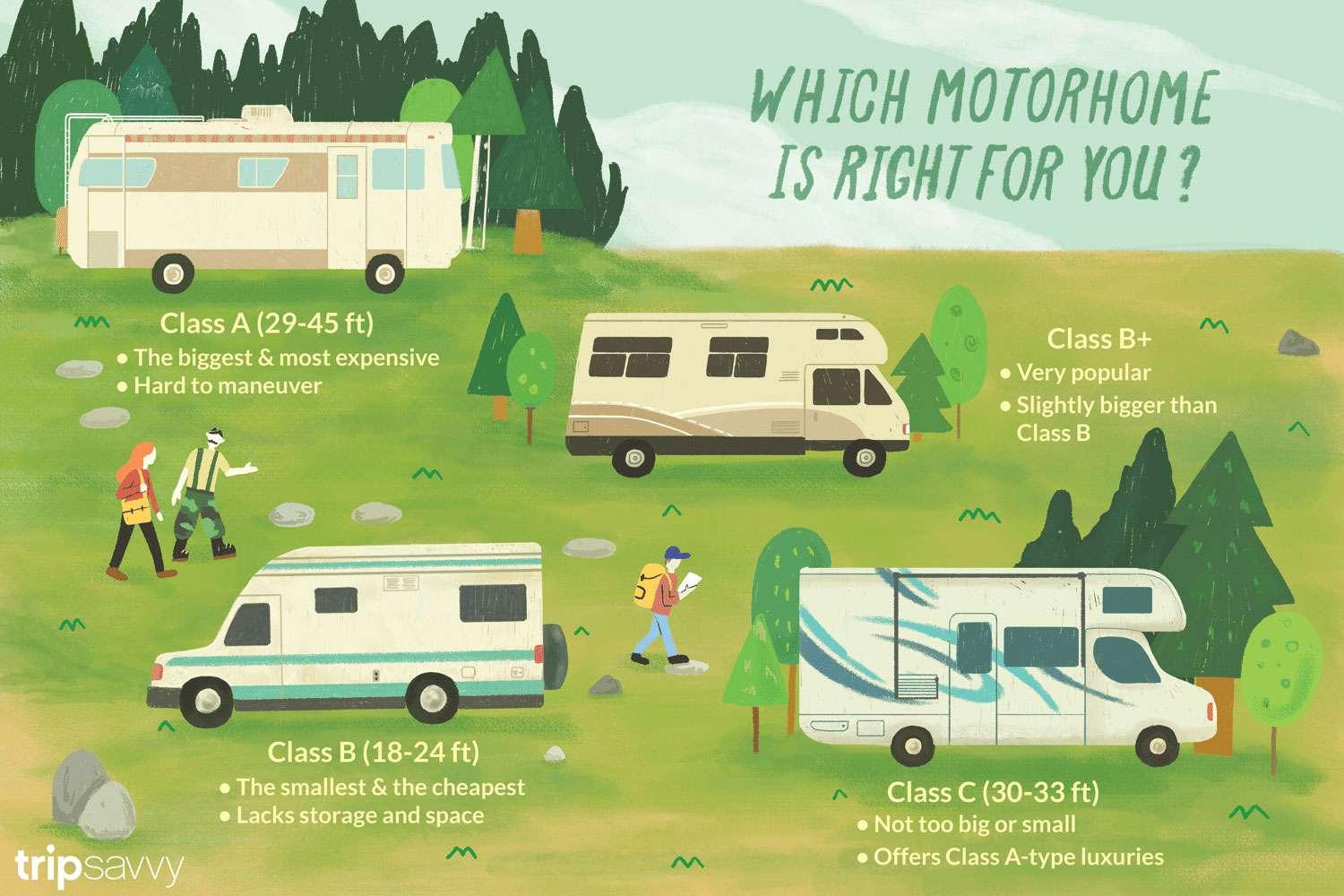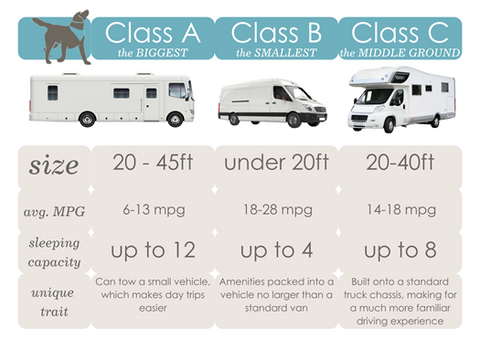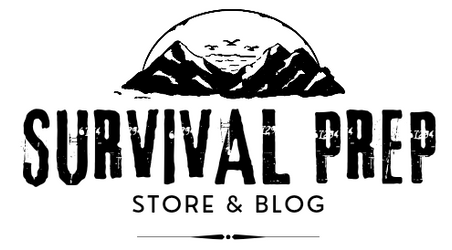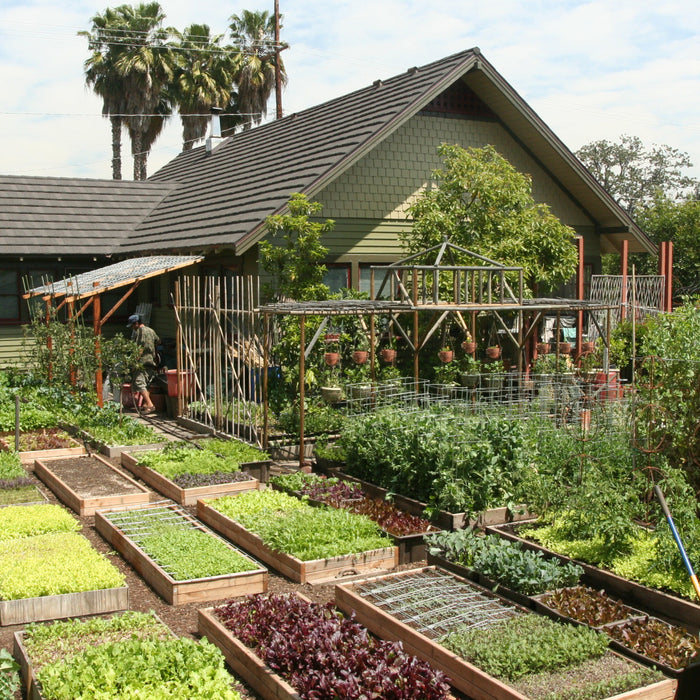

Choosing the Right TV for Your Lifestyle
When it comes to choosing the right type of RV, there are many options available on the market. The decision-making process can be overwhelming, especially for new buyers or those looking to upgrade. In this post, we will discuss various RV models, their uses, and how they can be a great resource for preppers.

Types of RVs
-
Class A RVs: Class A RVs are the most significant and most luxurious of all RV models. They come in lengths ranging from 26 to 45 feet and offer high-end amenities such as multiple bedrooms, full-size kitchens, and spacious living rooms. They are ideal for long-term living and can be a perfect option for preppers who plan to live off the grid for an extended period. Class A RVs offer plenty of space and storage for emergency supplies and provisions, making them a great resource for preppers.
-
Class B RVs: Class B RVs, also known as camper vans, are smaller than Class A RVs but still offer plenty of comfort and convenience. They are ideal for individuals or couples who want to travel and explore, as they are easy to maneuver and can fit into smaller parking spots. Class B RVs are an excellent option for preppers who want to remain mobile and agile during an emergency.
-
Class C RVs: Class C RVs are smaller than Class A RVs but larger than Class B RVs. They come in lengths ranging from 20 to 32 feet and are built on a truck chassis. They offer the amenities of a Class A RV, such as a kitchen and bathroom, but are easier to handle and maneuver. Class C RVs are an excellent option for preppers who want to balance comfort and mobility.
-
Travel Trailers: Travel trailers are towable RVs that come in a range of sizes, from small teardrop trailers to large fifth-wheel trailers. They are an excellent option for preppers who already own a truck or SUV with towing capacity. Travel trailers offer the convenience of having a dedicated living space that can be easily disconnected from the tow vehicle. They are ideal for preppers who want to remain mobile while still having the comforts of home.
-
Pop-up Campers: Pop-up campers are a lightweight and affordable option for preppers who want to enjoy the great outdoors without sacrificing comfort. They are easy to tow and set up, and they offer plenty of storage space for emergency supplies. Pop-up campers are an excellent option for preppers who want to remain mobile while still having a dedicated living space.

Class A RVs Pros & Cons
When it comes to choosing an RV, one of the most popular types is the Class A motorhome. These are typically large, luxurious vehicles that offer a high level of comfort and convenience. However, they come with a hefty price tag and require a significant investment of time and money. In this article, we'll take a closer look at the pros and cons of Class A RVs, their cost, and some recommended brands.
What are Class A RVs?
Class A RVs are typically the largest and most luxurious type of motorhome. They are built on a bus chassis and are often referred to as "bus-style" motorhomes. These vehicles can range in size from 25 feet to over 45 feet in length and are often equipped with high-end amenities such as full kitchens, spacious living areas, and multiple bedrooms and bathrooms.
Benefits of Class A RVs
-
Space and Comfort - Class A RVs are known for their spacious interiors, making them ideal for extended trips or full-time living. They offer a high level of comfort and convenience, with many models featuring amenities such as washer and dryers, full-size refrigerators, and even fireplaces.
-
Luxury Features - Class A RVs often come with high-end features such as leather upholstery, solid surface countertops, and premium audio and entertainment systems.
-
Driving Experience - Driving a Class A RV can be a unique experience, with many drivers enjoying the elevated view and the feeling of driving a large, powerful vehicle.
-
Resale Value - Class A RVs often hold their value well, making them a good investment for those who plan to sell their RV in the future.
Cons of Class A RVs
-
Cost - Class A RVs are some of the most expensive motorhomes on the market, with prices ranging from $100,000 to over $1 million.
-
Maintenance and Repairs - Maintaining and repairing a Class A RV can be expensive, with many parts and components requiring specialized knowledge and tools.
-
Fuel Economy - Class A RVs are not known for their fuel efficiency, with many models averaging just 7-10 miles per gallon.
-
Parking and Maneuverability - Due to their large size, Class A RVs can be difficult to park and maneuver, especially in tight spaces or crowded campgrounds.
Cost of Class A RVs
As mentioned, Class A RVs can be very expensive, with prices ranging from $100,000 to over $1 million. However, the cost can vary depending on the size, brand, and level of customization. In general, larger Class A RVs with more features and amenities will be more expensive than smaller, more basic models.
Recommended Brands of Class A RVs
-
Tiffin Motorhomes - Tiffin is a well-respected manufacturer of Class A RVs, known for their high-quality construction and attention to detail. Their models are often equipped with luxurious features such as solid surface countertops, porcelain toilets, and tile backsplashes.
-
Newmar - Newmar is another well-respected brand of Class A RVs, known for their innovative designs and high-end amenities. Many of their models feature residential-style appliances, hardwood cabinetry, and heated tile floors.
-
Winnebago - Winnebago is a popular manufacturer of Class A RVs, offering a range of models at different price points. Their models often feature high-end amenities such as Corian countertops, residential-style appliances, and multiple slide-outs for added living space.
Conclusion
Class A RVs offer a high level of comfort and luxury, making them a popular choice for those who enjoy extended trips or full-time RV living. However, they also come with a significant price tag and require a lot of maintenance and upkeep.
Class B RV Pros & Cons
Class B RVs
Class B RVs are the smallest type of motorhome available on the market. They're also known as camper vans or van conversions. These vehicles are built on a van chassis, making them easier to maneuver and park than larger motorhomes. Class B RVs are popular with individuals and couples who are looking for a compact and efficient way to travel and camp.
Benefits of Class B RVs
-
Maneuverability: Class B RVs are much smaller than Class A and Class C motorhomes, making them easier to maneuver on the road. They can fit in standard parking spaces and can navigate narrow roads and tight corners with ease.
-
Fuel Efficiency: Due to their smaller size and weight, Class B RVs are more fuel-efficient than larger motorhomes. They typically get between 14 and 18 miles per gallon, making them a great option for budget-conscious travelers.
-
Easy to Drive: Since Class B RVs are built on a van chassis, they handle like a regular car. This makes them easier to drive than larger motorhomes, especially for those who are new to RVing.
-
Versatility: Class B RVs are versatile and can be used for a variety of purposes. They're great for camping, road trips, and can even be used as a daily driver.
-
Parking: Class B RVs are small enough to fit in standard parking spaces, making them a great option for city dwellers who want to use their RV as a daily driver.
Cons of Class B RVs
-
Limited Space: Class B RVs are much smaller than Class A and Class C motorhomes, which means there is limited space inside. The living area is usually cramped, and the bathroom and kitchen are often combined into a small space.
-
Limited Amenities: Due to their smaller size, Class B RVs have limited amenities compared to larger motorhomes. For example, they may not have a separate bedroom, shower, or toilet.
-
Cost: While Class B RVs are less expensive than Class A and Class C motorhomes, they can still be quite expensive. The price can range from $50,000 to $150,000 or more, depending on the make and model.
-
Limited Sleeping Capacity: Class B RVs are designed for one or two people and have limited sleeping capacity. There is usually only one bed, which can be a drawback for families or groups of friends.
-
Limited Storage: Due to their smaller size, Class B RVs have limited storage space. This can be a challenge when packing for a longer trip.
Cost of Class B RVs
As mentioned, the cost of a Class B RV can range from $50,000 to $150,000 or more. The price depends on several factors, including the make and model, the amenities included, and the condition of the vehicle. Here are some popular Class B RV models and their average cost:
-
Winnebago Revel: This Class B RV is built on a Mercedes-Benz Sprinter chassis and includes features such as a full kitchen, bathroom, and a rear power-lift bed. The average cost is around $175,000.
-
Airstream Interstate: This Class B RV is built on a Mercedes-Benz Sprinter chassis and includes features such as a power sofa, kitchen, bathroom, and a queen-sized bed. The average cost is around $165,000.
-
Roadtrek Zion: This Class B RV is built on a Ram ProMaster chassis and includes features such as a kitchen, bathroom, and a power sofa bed. The average cost is around $110,000.
-
Pleasure-Way Plateau FL: This Class B RV is built on a Mercedes-Benz Sprinter chassis and includes features such as a full kitchen, bathroom, and a power sofa bed. The average cost is around $155,000.
-
Coachmen Galleria: This Class B RV is built on a Mercedes-Benz Sprinter chassis and includes features such as a full kitchen, bathroom, and a queen-sized bed. The average cost is around $150,000.
Class C RVs Pros & Cons
What is a Class C RV?
Class C RVs are medium-sized motorhomes that typically have a cab-over bunk, which is a bed that is situated over the driver and passenger seats. They are built on a truck or van chassis, usually with a gasoline engine, and have a raised sleeping area that makes them more spacious and comfortable than Class B RVs. Class C RVs are typically 20 to 30 feet long, and they offer many of the same amenities as larger Class A motorhomes but in a more compact and affordable package.
Pros of Class C RVs
-
Spacious: Class C RVs have more space than Class B RVs, making them ideal for families or groups of friends traveling together. The cab-over bunk provides extra sleeping space, and the interior layout is designed to maximize living and storage space.
-
Affordable: Class C RVs are typically less expensive than Class A motorhomes, making them a more accessible option for many RV enthusiasts. They are also less expensive to operate and maintain than larger RVs.
-
Easy to drive: Class C RVs are built on a truck or van chassis, making them easier to maneuver and drive than larger motorhomes. They are also more fuel-efficient than Class A RVs, which can be a significant advantage for long trips.
-
Versatile: Class C RVs are versatile and can be used for a wide range of activities, including camping, road trips, tailgating, and more. They can also be used as a primary residence for those who want to downsize or live a more nomadic lifestyle.
-
Accessible: Class C RVs are generally more accessible than Class A motorhomes, as they can fit into more campsites and parking spots. This makes them a better option for those who want to explore off-the-beaten-path destinations.
Cons of Class C RVs
-
Limited storage: Class C RVs have limited storage space, which can be a challenge for those who want to bring along all their gear and equipment. This can be especially problematic for longer trips or for those who want to bring along recreational vehicles like bicycles or kayaks.
-
Limited sleeping space: Although Class C RVs have more sleeping space than Class B RVs, they still may not be large enough to comfortably sleep larger groups of people. This can be a challenge for families or groups of friends who want to travel together.
-
Lack of privacy: The cab-over bunk in Class C RVs can be a disadvantage for those who want more privacy. The sleeping area is typically open to the rest of the RV, which can be a challenge for those who want to have some quiet time or space to themselves.
-
Maintenance: Class C RVs, like all motorhomes, require regular maintenance and repairs. This can be expensive and time-consuming, especially for those who do not have experience with mechanical repairs.
Cost of Class C RVs
The cost of Class C RVs can vary widely depending on the brand, size, and features. Entry-level Class C RVs can cost between $50,000 and $75,000, while more luxurious models can cost upwards of $150,000. The cost of ownership also includes insurance, maintenance, and storage fees, which can add up over time.
Travel Trailer Pros & Cons
Travel trailers are a popular option for those who want to explore the great outdoors while enjoying the comforts of home. They come in a variety of sizes, styles, and features, making it easy to find one that meets your specific needs and budget. In this article, we will discuss the best travel trailers on the market, their cost, pros, and cons, and some recommendations for those in the market for a new travel trailer.
Pros of Travel Trailers
-
Flexibility: Travel trailers offer a high degree of flexibility in terms of where you can travel and what you can do once you get there. They can be easily towed and parked in a variety of locations, including campgrounds, state parks, and even some residential neighborhoods.
-
Comfort: Travel trailers are designed to provide a high degree of comfort, with many models featuring a variety of amenities, including a fully-equipped kitchen, a comfortable sleeping area, and a bathroom.
-
Affordability: Travel trailers are typically less expensive than motorhomes, making them a more affordable option for those who want to explore the great outdoors without breaking the bank.
-
Privacy: Travel trailers offer a high degree of privacy, with many models featuring separate sleeping areas and bathrooms.
Cons of Travel Trailers
- Towing: Towing a travel trailer can be challenging, especially for those who are not experienced in towing. It requires a vehicle with a high towing capacity, and you must also be aware of the height and width of the trailer.
- Maintenance: Travel trailers require regular maintenance, including cleaning, inspecting the tires and brakes, and ensuring the electrical and plumbing systems are in good working order.
- Storage: When not in use, travel trailers require a place to be stored. This can be challenging for those who do not have space at their home or who live in an area with strict zoning regulations.
- Limited mobility: While travel trailers offer a high degree of flexibility, they are still limited in terms of mobility compared to motorhomes. Once parked, you will need a separate vehicle to explore the surrounding area.
Cost of Travel Trailers
The cost of travel trailers can vary widely depending on the brand, size, and features. Entry-level travel trailers can cost as little as $10,000, while more luxurious models can cost upwards of $100,000. The cost of ownership also includes insurance, maintenance, and storage fees, which can add up over time.
Recommendations
When choosing a travel trailer, it's important to consider your specific needs and budget. Here are some recommendations based on different criteria:
-
Best for affordability: The Forest River Rockwood Mini Lite is an excellent option for those on a budget. It offers a range of features at an affordable price point, including a fully-equipped kitchen, a comfortable sleeping area, and plenty of storage space.
-
Best for luxury: The Grand Design Reflection is a luxurious travel trailer that features a spacious interior, a fully-equipped kitchen, and a comfortable sleeping area. It also offers a range of optional features, including a fireplace, theater seating, and a king-size bed.
-
Best for families: The Jayco Jay Flight is a popular choice for families, with its spacious interior, bunkhouse, and fully-equipped kitchen. It also offers a range of optional features, including a fireplace and outdoor kitchen.
-
Best for solo travelers: The Casita Spirit Deluxe is a lightweight travel trailer that is easy to tow and perfect for solo travelers. It features a comfortable sleeping area, a fully-equipped kitchen, and a spacious bathroom
Best Travel Trailers
-
Airstream: Airstream is known for its iconic silver bullet trailers that have been popular for decades. They are known for their high-quality construction, sleek design, and durability. The Airstream Basecamp is a popular model that is perfect for those who want to explore the great outdoors in style. It is lightweight, easy to tow, and features a spacious interior with plenty of storage space.
-
Casita: Casita is a small, family-owned company that specializes in lightweight travel trailers. Their trailers are easy to tow and feature a variety of amenities, including a bathroom, kitchen, and sleeping area. The Casita Spirit Deluxe is a popular model that features a dinette that converts into a comfortable bed, a spacious bathroom, and a fully-equipped kitchen.
-
Forest River: Forest River is one of the largest travel trailer manufacturers in the world. They offer a wide range of models, from basic to luxury, making it easy to find one that fits your budget and needs. The Forest River Rockwood Mini Lite is a popular model that is lightweight and easy to tow. It features a spacious interior with plenty of storage space, a fully-equipped kitchen, and a comfortable sleeping area.
-
Grand Design: Grand Design is a newer company that has quickly gained popularity for its high-quality construction and modern design. The Grand Design Imagine is a popular model that features a spacious interior, a fully-equipped kitchen, and a comfortable sleeping area. It also has a variety of optional features, including a fireplace and theater seating.
-
Jayco: Jayco is another popular travel trailer manufacturer that offers a variety of models to fit any budget and need. The Jayco Jay Flight is a popular model that is known for its durability and comfort. It features a spacious interior, a fully-equipped kitchen, and a comfortable sleeping area. It also has a variety of optional features, including a fireplace and a bunkhouse.
Pop Up Campers Pros & Cons
Pop up campers are an excellent option for those who want to enjoy camping without having to invest in a full-size RV or trailer. Pop up campers are lightweight and easy to tow, making them a great option for those who want to explore remote or off-the-beaten-path destinations. In this article, we will discuss the best pop up campers, the cost, pros and cons, and recommendations.
What is a Pop Up Camper?
A pop up camper is a type of camper that is designed to be towed behind a vehicle. Pop up campers are typically smaller than full-size RVs or trailers and are designed to fold down for easy storage and towing. They are often referred to as tent trailers or folding campers because they are designed to fold down for easy transportation and storage.
Pros of Pop Up Campers
-
Lightweight and easy to tow: Pop up campers are lightweight and easy to tow, making them an ideal option for those who want to explore remote or off-the-beaten-path destinations. They can be towed by a variety of vehicles, including cars, SUVs, and trucks.
-
Affordable: Pop up campers are typically less expensive than full-size RVs or trailers. They are also more fuel-efficient, which can save you money on gas during long trips.
-
Spacious: Despite their small size, pop up campers can be quite spacious. They typically have a sleeping area, a dining area, and a small kitchenette.
-
Easy to store: Pop up campers are designed to fold down for easy storage, making them an ideal option for those who don't have a lot of storage space.
-
Versatile: Pop up campers are versatile and can be used for a variety of activities, including camping, road trips, and more.
Cons of Pop Up Campers
-
Limited amenities: Pop up campers typically have limited amenities, which can be a disadvantage for those who want more luxurious accommodations. They typically have a small kitchenette and a basic bathroom.
-
Limited storage: Pop up campers have limited storage space, which can be a challenge for those who want to bring along all their gear and equipment. This can be especially problematic for longer trips or for those who want to bring along recreational vehicles like bicycles or kayaks.
-
Weather: Pop up campers are not as weather-resistant as full-size RVs or trailers. They are designed to be used during the summer months and may not be suitable for use during colder or wetter weather.
Cost of Pop Up Campers
The cost of a pop up camper can vary widely depending on the brand, size, and features. Entry-level pop up campers can cost between $5,000 and $10,000, while more luxurious models can cost upwards of $25,000. The cost of ownership also includes insurance, maintenance, and storage fees, which can add up over time.
Recommended Brands of Pop Up Campers
-
Forest River: Forest River is one of the most well-known pop up camper manufacturers. They offer a variety of models, ranging from entry-level to luxury.
-
Jayco: Jayco is another well-known pop up camper manufacturer. They offer a range of models, including small, lightweight options and larger, more luxurious models.
-
Coachmen: Coachmen is another popular pop up camper manufacturer. They offer a variety of models, including lightweight and easy-to-tow options.
-
Starcraft: Starcraft is another well-known pop up camper manufacturer. They offer a range of models, including small, basic options and larger, more luxurious models.
-
Aliner: Aliner is a unique pop up camper manufacturer that specializes in hard-sided pop up campers. Their models are designed to be lightweight
When it comes to RVs, there are many add-ons available that can make your experience more comfortable and convenient. Here are some top-rated products available on Amazon, along with detailed explanations of their uses.
-
RV Water Filter: An RV water filter is an essential add-on that helps remove impurities and contaminants from your RV's water supply. It ensures that you have clean, safe drinking water and can help prevent damage to your RV's plumbing system. The Camco TastePURE RV Water Filter is a highly rated option on Amazon, featuring a large capacity and a flexible hose protector.
-
RV Surge Protector: An RV surge protector is another must-have add-on that protects your RV's electrical system from power surges and voltage spikes. It helps prevent damage to your appliances and electronics, and can help keep you safe during lightning storms. The Progressive Industries EMS-PT30X RV Surge Protector is a highly rated option on Amazon, featuring a weather-resistant design and advanced surge protection.
-
RV Leveling Blocks: RV leveling blocks help you level your RV on uneven terrain, ensuring that your appliances work correctly and preventing damage to your RV's frame. The Camco FasTen RV Leveling Blocks are a highly rated option on Amazon, featuring a durable design and a non-slip surface for added safety.
-
RV Sewer Hose Kit: An RV sewer hose kit is an essential add-on for dumping your RV's waste tanks. It ensures that you can safely and easily dump your tanks without any leaks or spills. The Camco RhinoFLEX RV Sewer Hose Kit is a highly rated option on Amazon, featuring a sturdy, leak-proof design and a flexible hose for easy handling.
-
RV GPS Navigation System: An RV GPS navigation system is a valuable add-on that helps you navigate your RV safely and efficiently. It offers customized routing options for RVs and includes information about RV parks, campsites, and other RV-specific points of interest. The Rand McNally RVND 7 GPS Navigator is a highly rated option on Amazon, featuring a large, easy-to-read display and RV-specific routing options.
-
RV WiFi Booster: An RV WiFi booster helps boost your RV's WiFi signal, ensuring that you have a reliable internet connection no matter where you are. The Alfa Network WiFi CampPro 2 Long Range WiFi Repeater Kit is a highly rated option on Amazon, featuring a powerful antenna and easy-to-use setup instructions.
-
RV Solar Panel Kit: An RV solar panel kit helps you generate power for your RV off the grid, reducing your reliance on traditional power sources. The Renogy 100 Watt 12 Volt Monocrystalline Solar Panel Kit is a highly rated option on Amazon, featuring a high-efficiency design and a durable construction.
In conclusion, the right type of RV for preppers depends on personal preference, budget, and lifestyle. Class A RVs offer the most comfort and space, while Class B RVs and pop-up campers are more mobile and affordable. Travel trailers and Class C RVs offer a balance between comfort and mobility. Whatever the choice, an RV can be a valuable resource for preppers, providing shelter, storage, and mobility during an emergency.
Recommended Posts
- How to Build a Bug Out Bag for Kids: Tips and Tricks
- 10 Survival Skills Every Kid Should Know
- Food prices are about to skyrocket even more; Prepare for a 'famine,' followed by housing crash, then equities wipeout - Michael Gayed
- South Threatened by Severe Weather After Texas Tornado Disaster: How to Prepare.
- The Ultimate Guide to Radiation Water Filters: How They Work



